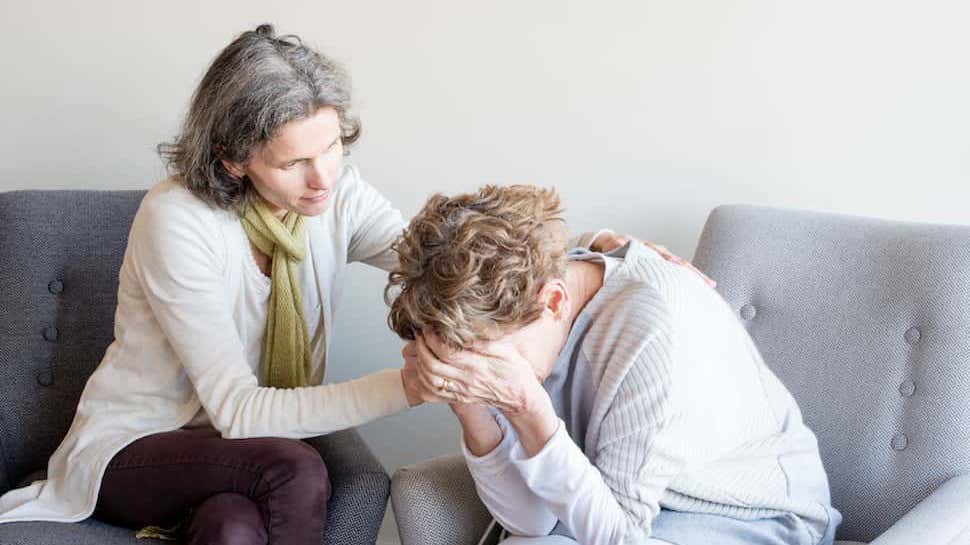Loss is extremely personal and varied for different people and there can ever be a guide to actually surviving loss but there are definitely shared experiences of people how personally they’ve dealt with it, loss has a broad spectrum as it doesn’t merely relates to death, loss is heartbreak and it exists in different meanings to people,
- it can be a loss of a relationship,
- a loss of a job,
- a victim of sexual abuse who loses feelings of security and safety in everyone around them,
- loss of financial stability
- loss of a childhood dream and ultimately it encapsulates death too, loss can be anything one can think of hearing this word.
When you experience loss of any kind grief is the process followed after it that makes us move forward with loss people believe that grieving is associated with feelings of losing someone to death and people claim that to be false, everyone goes through in a day to day basis and it has been applied to all kinds of loses, don’t let this worry you, expectations, careers, dreams, memories, possessions and people can all be mourned.
Even though loss comes differently to everyone but apparently they all are dealt in the same manner, dealing with loss and grief is nondiscriminatory among people.
You must know that grief can be sparked by even small losses in life. You might experience grief, for instance, if you move away from home, graduate from college, or change careers.
No matter what you’ve lost, it’s personal to you, so don’t feel bad about how you feel or think that only specific losses should be mourned. It’s common to experience loss and grieve whether the deceased was a meaningful person, animal, connection, or circumstance for you.
Whatever your reason for grieving, there are healthy strategies to deal with the suffering that, over time, can lessen your sorrow and assist you in accepting your loss, discovering new purpose, and ultimately moving on with your life.
SEEKING SUPPORT.
You may feel the want to isolate yourself and withdraw from people when you are grieving. But overcoming a loss sometimes requires the direct, personal help of others.
When you are having a tough time with your feelings, it’s crucial to communicate, even if you don’t feel comfortable doing so in other situations, here you should not be ignorant to that.

Even while talking about your loss with friends and family might help you cope with your grief, you don’t have to do it every time you see them, but look for an opportunity also if they are available also for that, another source of comfort is merely being in the presence of people who care about you. Avoiding isolation is the key in such emotionally testing times.
Turn to your beliefs.
Rely on your religion for solace. If you practise your religion, accept the comfort that comes with its grief rituals.
Spiritual activities that are meaningful to you, like prayer, meditation, or going to church, may provide you solace. If you are having questions about your religious beliefs in the wake of the loss, speak with a clergyperson or other members of your religious group.
HELP YOURSELF.
When you are grieving a loss, it is more important than ever to take care of yourself. The strain of a severe loss can swiftly deplete your energy and emotional reserves. If you look after your physical and emotional needs, it will be simpler for you to get through this trying time.
Accept yourself and the way you feel. You won’t be able to avoid experiencing grief forever, no matter how hard you try. If you want to heal, you must acknowledge your suffering.
Avoiding suffering and loss just lengthens the grieving process. Unresolved grief can lead to complications such as dejection, anxiety, substance abuse, and health problems.
Find comfort in the things you like doing.
When your suffering gets tough, help yourself with your hobbies, you may like writing and noting your feelings down and will make you feel lighter. Sometimes we can not have people to talk to us and in that case you must turn to the pages, write it down as it will release the worry.
If you love art and paintings, try to draw and create something with your art. Even if you are unable to talk about your sadness with others, it could be beneficial to write down your ideas and feelings or put it on a canvas or elsewhere. As an additional outlet for your emotions, you may make a scrapbook or volunteer your time for a cause associated with your loss.
Maintain your interests and activities as best you can. The comfort of routine and going back to the activities that bring you joy and bind you to people may help you accept your loss and speed the grieving process.




